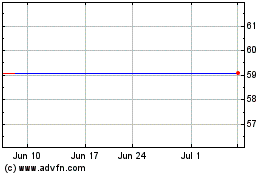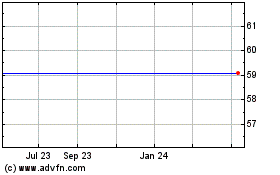By Mike Shields
Meredith Corp., the owner of local TV stations and publisher of
magazines like Parents and Better Homes & Gardens, had a
problem.
The more partners the media company plugged into for ad
technology, measurement and data, the harder it was to find out
basic information about Meredith's digital ad sales operations,
according to Matt Minoff, senior vice president and chief digital
officer for Meredith. For instance, it became harder for his team
to determine how much money Meredith's various websites made from
programmatic advertising in a given day, he said.
One might wonder: Couldn't Meredith's existing ad tech partners
provide that information? Isn't data the precise thing that digital
advertising software is supposed to be good at?
According to Mr. Minoff, ad tech partners are great at telling a
publisher how much they are making for them individually. But tying
together information from all of those partners is a big
challenge.
"If I wanted to know what I made yesterday, the number of
reports you need to aggregate and look at is fairly overwhelming,"
said Mr. Minoff.
In 2015, Meredith started working with Staq, a company that
promises to help publishers pull together all of their ad
performance data -- from impressions delivered to revenue earned --
in one tool. Think of Staq as the publishing world's answer to the
various marketing cloud offerings from companies like Adobe and
Oracle.
Last month, Staq, which has raised $8.63 million to date,
installed Andy Ellenthal as its new chief executive, replacing Staq
founder James Curran, who became chief product officer. Mr.
Ellenthal previously held senior roles at a variety of digital ad
companies.
Given the current climate in digital advertising -- with
industry leaders like Procter & Gamble's chief brand officer,
Marc Pritchard, calling for more transparency and questioning the
very value of ad tech -- Staq sees an opportunity to present itself
as an antidote of sorts. In fact, in the company's pitch to media
companies, Staq emphasizes its ability to help them provide more
clarity to advertisers, while also helping them gain back more
leverage.
That approach has helped Staq land 10 major publishing clients
since the beginning of this year.
"While advertisers are frustrated by the number of partners,
standards and metrics required to do business today, publishers
bear the brunt of the work," Mr. Ellenthal said. "Staq [helps]
publishers create transparency but also control. With buyers
putting more pressure on publishers, STAQ gives the tools to not
only address these concerns, but also gives publishers the same
sophisticated view as advertisers."
It seems the more complex the digital media business gets, the
more need for software intermediaries. Indeed, not only does
Meredith manage multiple websites that each employ a handful of
programmatic partners, it is also providing advertisers an ever
growing list of complementary data tracked by specialists who
measure things like ad viewability and audience measurement.
Plus, even the ad campaigns that Meredith sells directly often
include ads on platforms like Facebook, YouTube and other outlets.
Each of those digital platforms offers its own data sets.
Five-year-old Staq says it can help customers pull in data from
400 different ad tech partners. The firm's clients include a
growing list of big media names likes Hulu and Warner Bros.
"Over the last 10 years or so, the amount of data has exploded
for publishers," Mr. Ellenthal said. "Our customers work with
excess of 25 partners and receive something close to 4 billion
cells of data."
Given that data overload, "you could spend 100% of the time
aggregating data," Mr. Ellenthal added. "That can cause [a
business] tremendous pain."
And these days, any web publisher needs to be spending as much
time as it can trying to scrape and claw for the shrinking
percentage of digital ad spending that isn't going to Google and
Facebook. Part of the two companies' huge advantage in the market
-- besides their size -- is their ability to offer marketers robust
data on consumers for ad targeting purposes, not to mention
powerful ad technology and teams of engineers focused on ad
products.
Rather than share a cut of their revenue, publishers pay Staq a
monthly fee to use their software, similar to the steady revenue
streams touted by many "software as a service" companies in the
marketing technology sector.
Not only does Staq promise publishers more visibility into their
multitude of data sources, the firm says media companies can more
quickly spot problems in their vast ad tech operations, such as
broken links, ads that aren't rendering, or basic IT hiccups. That
visibility should allow publishers to make fixes quickly and save
lost revenue.
For example, a publisher may notice that certain kinds of
advertisers are paying higher prices on inventory at certain times
of day from other parts of the globe, enabling the site to
redistribute activity accordingly, said Rich Caccappolo, chief
operating officer of DailyMail.com, which is a Staq customer.
Mr. Caccappolo said Staq helped his company realize the
importance of header bidding early on and which partners were
delivering the biggest bang for their buck.
"Initially, for us this was about catching problems faster and
keeping track of your overall prices," he said. "Then, you start to
use it in a proactive fashion. Not just managing downside but using
it for upside potential."
Write to Mike Shields at mike.shields@wsj.com
(END) Dow Jones Newswires
April 14, 2017 06:14 ET (10:14 GMT)
Copyright (c) 2017 Dow Jones & Company, Inc.
Meredith (NYSE:MDP)
Historical Stock Chart
From Mar 2024 to Apr 2024

Meredith (NYSE:MDP)
Historical Stock Chart
From Apr 2023 to Apr 2024
